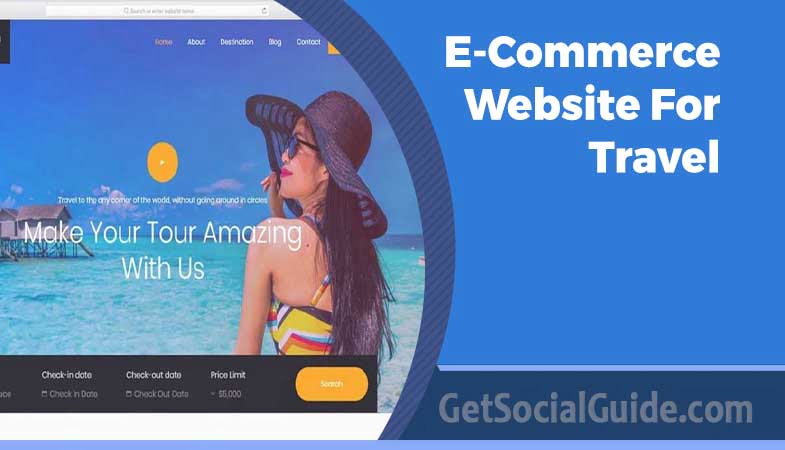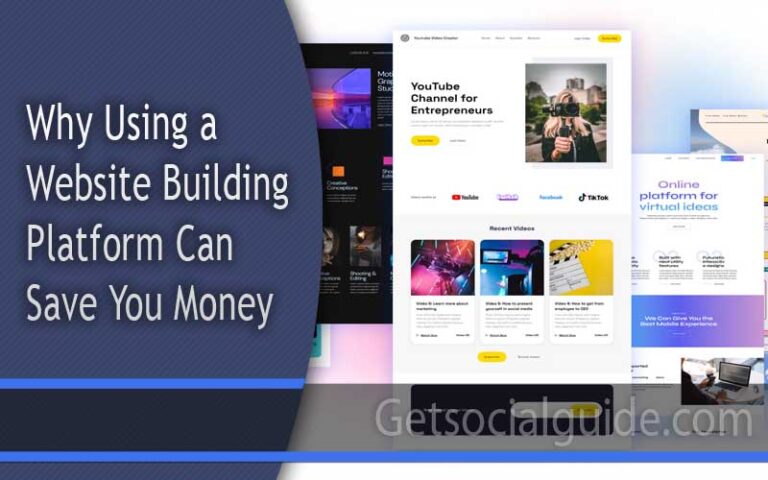Creating An E-Commerce Website For Travel: Things You Must Consider
Building an e-commerce site can be complicated. There are various things that require consideration, from creating an intuitive design and planning the product layout to integrating the payment gateway and securing the travel website.
Unlike most e-commerce websites, they inform the users, showcase the product line, and make their purchase from you.
If you are looking forward to creating your e-commerce website for travel purposes, you should know that having a travel website is the need of the hour. Multiple users want immediate access to the details and make bookings with the tap of their finger.
With a growing digital landscape, it is possible to drive growth with an online presence. In this article, you will discover things that you need to consider when creating your own e-commerce website for travel purposes.
Things To Consider On Your Travel Website
With every other business shifting from physical stores to online presence, the traditional way of developing a website is by catering to the audience with relevant information.
For travel-related websites, it’s crucial to include information that highlights the importance of having an onward flight ticket, as this can significantly impact travelers’ itineraries and entry requirements
But it might be your concern to develop a website with a hassle-free user journey and a site that offers accessible travel information. Here is a list of components you must consider when creating an e-commerce website for travel.
1. Design A Mobile-Friendly Website
In the present century, not even a single soul has spared themselves from having an internet connection on their phone.
In addition to that, the internet has taken the world by storm, and it easily reflects whether your e-commerce website is user-friendly or not.
To eliminate this issue, you must emphasize the website traffic that will be visited through mobile screens. Try to keep the travel images and content error-free on the mobile screens. Thus, any inconvenience on the website can push away the user, and they will look for alternatives.
Thus, your travel e-commerce website should be responsive to fit into every screen size. This will enable more conversions. Along with that, the smoother the user experience is, the better your website.
Therefore, creating a responsive website design will assist in improving conversion and visibility rates along with effective search engine rankings.
2. Optimize Search Results
The search results are another factor that you need to consider while creating your e-commerce website.
Remember to keep the search results specific as per the customer’s needs. In the meantime, it should showcase relevant information that enables users to compare the plans.
Now, you must consider what information the user is looking for. Thus, there are many ways to check whether free breakfast and Wi-Fi are included or how far the city is from the airport.
Therefore, you can adopt machine learning tools to create an effective journey. Furthermore, you can personalize users’ search results based on demographic data, preference, and bookings.
3. Informative Content
The purpose of building an online store is to sell your products. Hence, you must highlight your products well on the site. Thus, you can recommend your users with high-quality images that are likely to receive the attention of users.
Therefore, you need to direct the visitors to shop from the widest range of travel accessories on your website. Include well-reputed travel gear brands like thispower to build trust.
Furthermore, to effectively showcase your website, it is good to have layouts that emphasize your product. Starting from color, size, weight, and other relevant instructions the users need to know before making a purchase.
4. Mention Shipping Rates
If you plan to offer discounts on your e-commerce website, do not charge a high shipping charge. When the customer experiences discount rates with no travel charges, it is likely that the customer will make a repeat purchase.
Similarly, suppose the customer comes across any offer on the website with zero delivery charges. In that case, there is a high chance the customer will not think twice before making a purchase.
Hence, the low to no shipping charges tempt the customers to shop through online means.
5. Ease Of Checkout
As an e-commerce website, you will make it mandatory for the users to sign up and create an account before they can purchase anything. While it may be convenient for you, it might be for something other than the user.
However, your customer may want to purchase a product. They might want to wait to fill out the form soliciting their details. During guest checkouts, the customer might prefer to wait to fill in a little personal information before they can buy from your website.
With this arrangement, you can easily eliminate the barre of creating an account and drastically boost conversion rates.
6. Booking Management
Your e-commerce website should maintain an effective booking management system if you are a travel agency.
This will allow the agency to handle reservations, communicate effectively with clients, and manage itineraries.
Hence, if you manage your bookings, you eventually spend more time handling your business and the customers more closely. In due course, it builds an effective customer relationship.
Integrating the e-commerce site with social media can have a long-term benefit. However, the social media platform is a great venture to promote the product line and advertise discounts on new offerings.
Thus, you can collect data from the visitors and offer recommendations on products likely to match the customer’s needs and preferences.
Similarly, integrating your website with social media can effectively deliver a coherent user experience. In addition to that, your integration with the platform will help you gather feedback on your products.
Give your users a space where they can post feedback on Instagram or Facebook page. This social media technique can go a long way in streamlining branding efforts.
Streamline Your Travel Website
Your travel business is a highly competitive market and operates on a full-functioning website that can help you beat the odds.
Thus, from the above-mentioned components, you can establish a website to help you market your product and create awareness about your brand.
Similarly, more than adequate information and attractive destination pictures are required. From guiding the users to making their booking to recommending the best equipment that one can carry while traveling, you need to include them all.
Moreover, keep updating your product information, and the website will become the first touchpoint for your travel e-commerce website.





